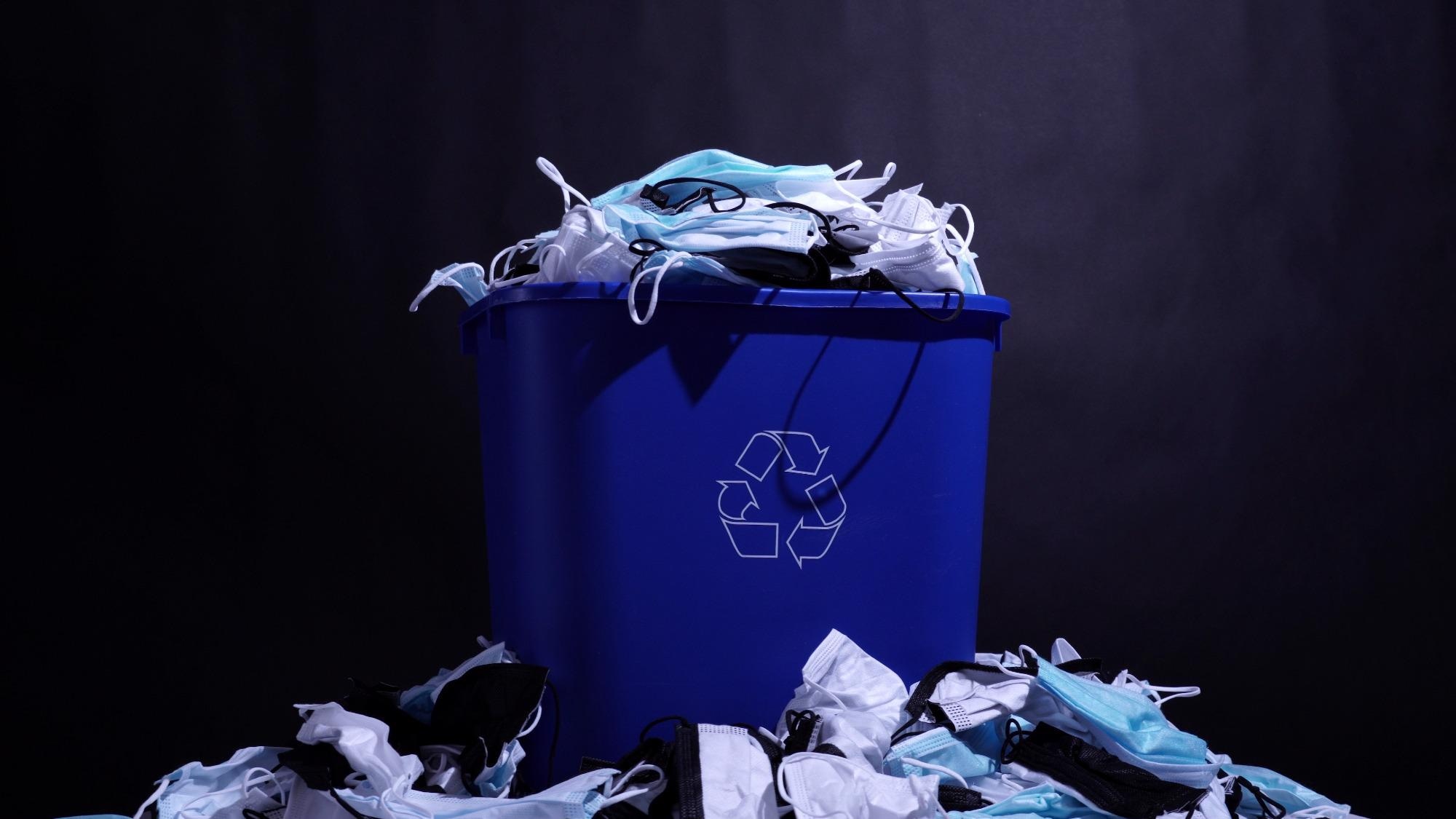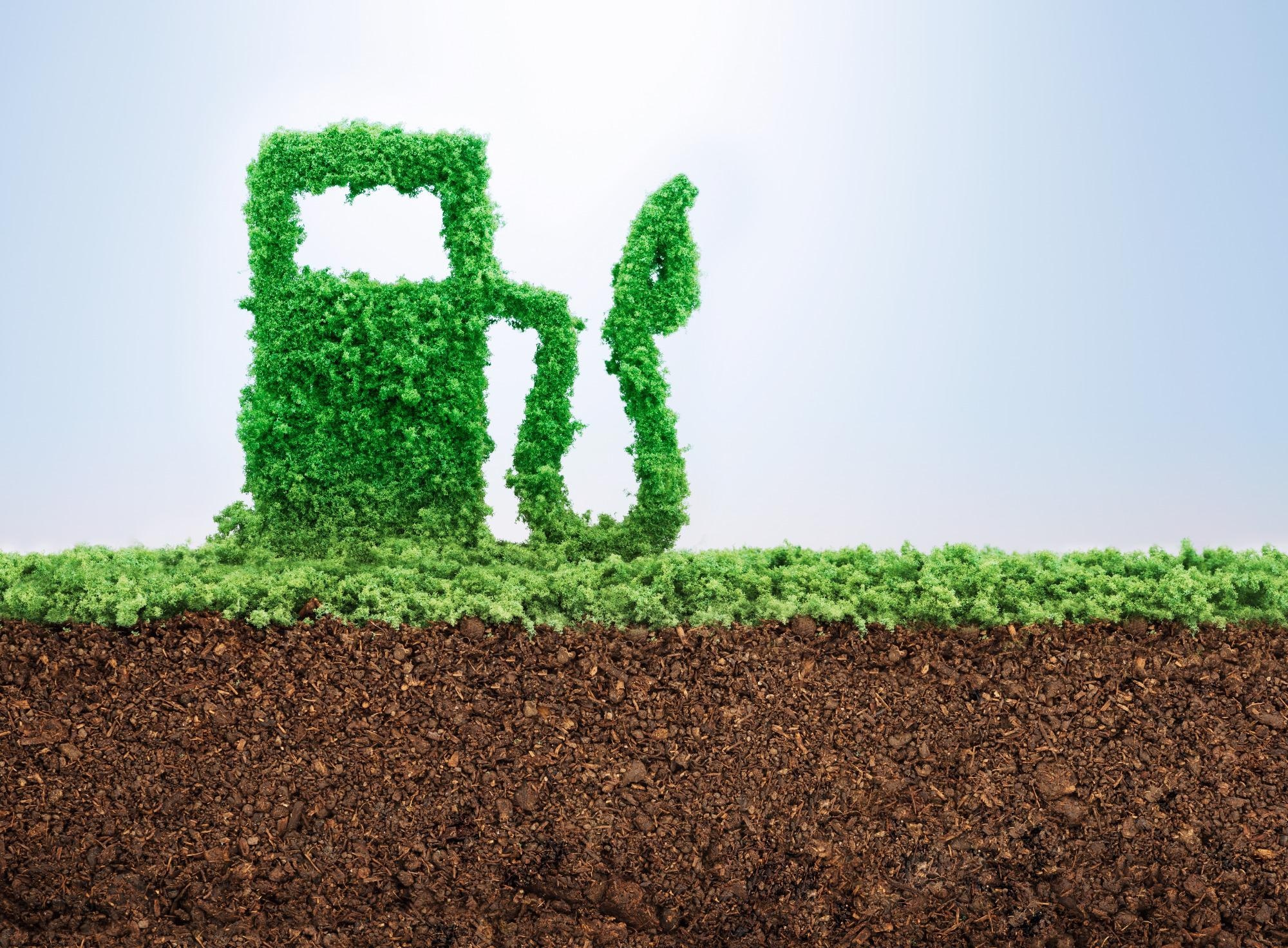AZoCleantech speaks with Fengqi You from Cornell University about his novel PPE processing system that can convert waste PPE back into its original forms and recycle it further, potentially into fuels.
Prior to the COVID-19 pandemic, a major focus was on the reduction of single-use plastics. Why was this?
Existing single-use plastic production depletes fossil resources as basic chemical and energy sources. For end-of-life treatment, incineration and landfilling are widely used for processing single-use plastic waste. These two popular plastic waste treatment approaches pose toxicity problems from plastic pollution and a high amount of greenhouse gases. Reducing single-use plastics, in this context, can support climate change mitigation and plastic pollution reduction arising from waste plastics treatment.
The COVID-19 pandemic has increased the demand for and disposal of personal protective equipment (PPE). How has this disrupted plans to reduce global consumption of single-use plastics?
PPE, including facemasks, face shields, surgical gowns, gloves and respirators, is mainly made from common single-use plastics, like polypropylene and polyethylene. Although existing studies have been dedicated to enhancing the use of this PPE, the supply of reused PPE still can not catch the demand for global use. This led to the current PPE production surge and the corresponding single-use plastics consumption, which disrupted the plan to reduce global consumption.

Image Credit: Shutterstock.com/Golden Shrimp
Health care facilities around the world are creating about 7.5 pounds of PPE waste per person on a daily basis through COVID-19-associated services. What impact has this had on the environment?
If the PPE waste that was generated during the pandemic is incinerated or sent to landfills, that will create a climate change effect equivalent to 43.20 and 27.75 pounds of CO2 per person for COVID-related activities, respectively.
Rather than recycling PPE, your team has come up with a novel solution that instead sustainably reroutes the discarded material. Can you provide an overview of this process?
This novel waste PPE processing system integrates the pre-processing facility to disinfect waste PPE and pyrolysis-based processes to convert disinfected PPE into renewable fuels and basic chemicals (after separation and purification) for refineries, chemical plants and metallurgy plants to reduce GHG emissions and fossil fuel use.
Your research states that this method shows an environmental advantage by reducing total greenhouse gas emissions and saving energy. How has this been achieved?
When treating waste PPE in our processing system, the carbon within PPE is allocated to hydrocarbon products and reduces carbon combustion and its direct greenhouse gas emissions to the air, including CO2, that contribute to climate change.
Consequently, our proposed PPE processing system can reduce GHG emissions compared to the incineration process. Moreover, this PPE processing system can produce monomeric basic chemicals to avoid offsite production for energy savings. Gasoline and diesel can also be produced from this processing system and supplied to their terminals as renewable fuels, which reduces fossil energy consumption.
How did you test the efficacy of your method, and what were the results of your tests?
We have simulated the whole process in the high-fidelity Aspen Plus chemical process simulation software to extract the product yield data to illustrate the efficiency of our processing system in PPE waste conversion, energy savings and GHG emissions reduction. The next step is looking for opportunities to test the technology system via a pilot-scale process.
How does your method compare to traditional methods of discarding used PPE?
Compared to conventional methods of discarding used PPE, our method can reduce viral infection plastic pollution-related environmental problems, including toxicity to organisms and human health, from discarding PPE wastes.
Using your novel method, what can discarded PPE be transformed into?
Using our novel method, PPE waste can be disinfected, broken down into small molecules and converted into monomeric basic chemicals like ethylene and propylene used for producing renewable fuels, including propane, butane, gasoline and diesel, and basic refining chemicals, such as light naphtha aromatic mixture chemicals.

Image Credit: Shutterstock.com/ pogonici
Did you come across any challenges during your research, and if so, how did you overcome them?
We did in fact come across a few research challenges in our study. We specifically needed to make sure that the proposed PPE processing system was low-energy consuming and produced little greenhouse gas emissions. We also needed to fill the gap by identifying and collecting relevant life cycle inventory data and address the site selection for building the proposed PPE processing system. To address such challenges, we were able to leverage our expertise in data science, AI, chemical engineering, process integration and optimization, energy efficiency maximization, waste minimization, energy systems engineering, and supply chain optimization.
What impact will such a method have on industry?
Our method can pave the way for effective PPE waste treatment and provide insight into the environmentally sustainable pathway for renewable fuel and chemical production from municipal solid waste, especially plastic waste. The method opens up new opportunities for treating waste PPE as a possible feedstock for the petrochemical industry.
What are the potential applications of this novel method beyond the medical sector?
This method can also effectively convert plastic waste mixture collected from all industrial sectors into renewable fuels through fast pyrolysis and downstream separation processes.
What are the next steps for your research?
Future research should investigate advanced PPE processing technologies with low energy consumption and flue gas output to reduce greenhouse gas emissions. The total investment can be further reduced by diversifying and optimizing downstream products. Current plastic waste upcycling studies could be applied to gain revenue from low-value plastic waste, while future process design and optimization could reduce the capital cost.
About Fengqi You
 Fengqi You is the Roxanne E. and Michael J. Zak Professor in the Smith School of Chemical and Biomolecular Engineering at Cornell University. He also serves as Chair of Ph.D. Studies in Cornell Systems Engineering, Associate Director of Cornell Energy Systems Institute, and Associate Director of Cornell Institute for Digital Agriculture. His research focuses on fundamental theory and methods in systems engineering and artificial intelligence, as well as their applications to smart manufacturing, digital agriculture, quantum computing, energy systems and sustainability. Fengqi has an h-index of 67 and published over 200 refereed articles in journals, such as Science, Nature Sustainability, Nature Communications, and Science Advances. Some of his research results have been editorially highlighted in Science and Nature, featured on dozens of journal covers (e.g., Energy & Environmental Science), and covered by major media outlets (e.g., The New York Times, BBC, Reuters, The Wall Street Journal, Daily Mail, Newsweek, BusinessWeek, New Scientist, Popular Science, and National Geographic). He is an award-winning scholar and teacher, having received around 20 major national/international awards over the past six years from the American Institute of Chemical Engineers (AIChE), American Chemical Society (ACS), Royal Society of Chemistry (RSC), American Society for Engineering Education (ASEE), American Automatic Control Council (AACC), in addition to a number of best paper awards. Fengqi is an elected Fellow of the Royal Society of Chemistry (FRSC) and a Fellow of the American Institute of Chemical Engineers (AIChE Fellow). For more information about his research group, visit:www.peese.org.
Fengqi You is the Roxanne E. and Michael J. Zak Professor in the Smith School of Chemical and Biomolecular Engineering at Cornell University. He also serves as Chair of Ph.D. Studies in Cornell Systems Engineering, Associate Director of Cornell Energy Systems Institute, and Associate Director of Cornell Institute for Digital Agriculture. His research focuses on fundamental theory and methods in systems engineering and artificial intelligence, as well as their applications to smart manufacturing, digital agriculture, quantum computing, energy systems and sustainability. Fengqi has an h-index of 67 and published over 200 refereed articles in journals, such as Science, Nature Sustainability, Nature Communications, and Science Advances. Some of his research results have been editorially highlighted in Science and Nature, featured on dozens of journal covers (e.g., Energy & Environmental Science), and covered by major media outlets (e.g., The New York Times, BBC, Reuters, The Wall Street Journal, Daily Mail, Newsweek, BusinessWeek, New Scientist, Popular Science, and National Geographic). He is an award-winning scholar and teacher, having received around 20 major national/international awards over the past six years from the American Institute of Chemical Engineers (AIChE), American Chemical Society (ACS), Royal Society of Chemistry (RSC), American Society for Engineering Education (ASEE), American Automatic Control Council (AACC), in addition to a number of best paper awards. Fengqi is an elected Fellow of the Royal Society of Chemistry (FRSC) and a Fellow of the American Institute of Chemical Engineers (AIChE Fellow). For more information about his research group, visit:www.peese.org.
Disclaimer: The views expressed here are those of the interviewee and do not necessarily represent the views of AZoM.com Limited (T/A) AZoNetwork, the owner and operator of this website. This disclaimer forms part of the Terms and Conditions of use of this website.